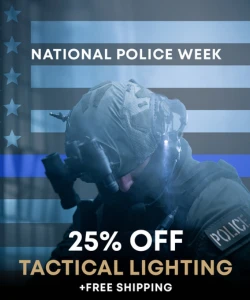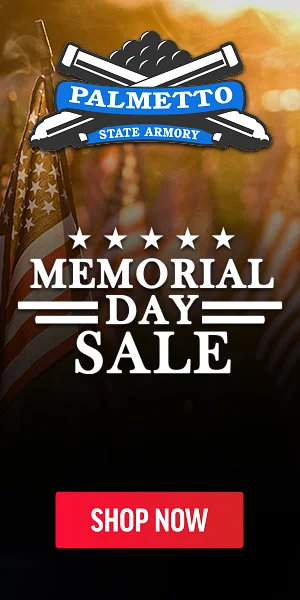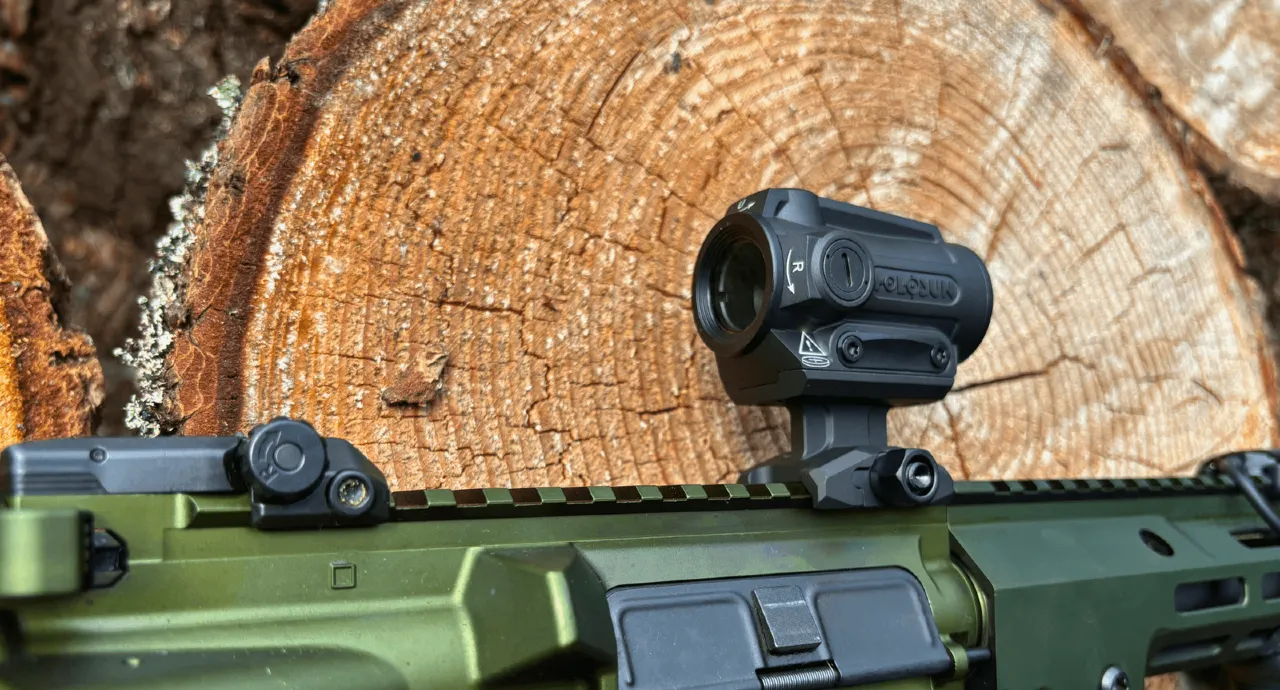Tactical knives, the name itself typically imposes visions of some form of Rambo knife in the hands of a mall ninja:

A tactical knife doesn’t mean fighting knife, while fighting may be a task of the tactical knife it’s usually not the main one. The tactical knife in general needs to be a multipurpose knife.
It needs to be able to cut and stab like a normal EDC knife but it needs to be able to do this in the most austere conditions. It has to be tough and be capable of taking an extreme amount of abuse at the same time. It has to be weather resistant, strong, and capable of running laps around any other EDC knife. Tactical doesn’t need to mean war, it could mean police work, it could be the knife a first responder uses to free someone trapped in their car, or the knife used to build a camp in a survival situation.
Tactical knives are a step above your normal knife.
BONUS OFFER: Get your free shooting range targets to print at home!
Get your free targets to print at home!
Different Types of Tactical Knives
#1 Fixed

Fixed blade knives in the tactical realm are used for a wide variety of different things. This includes typical knife tasks, but they may also be called upon to dig holes, hammer in tent stakes, to be used for prying, breaching, and more. A fixed blade knife is the ultimate fighting knife due to its size and durability.
Fixed blade knives are the best survival knives due to their multi-use style and they are quite rugged and reliable. Some fixed blades lose a bit of this when they become concealed carry style fixed blades. Their smaller size, and thinner dimensions make them a little less robust than most tactical knives.
#2 Folding

Folding knives designed for tactical use must stand apart from your average pocket knife. They are knives where the blade folds into the handle to reduce the size and make it pocket carry safe. They need to be tough, reliable, and easy to use. The blades need to lock up tight and open quickly. A folding knife is often an EDC item. Their smaller size and shape make them easy to pocket carry and the folding design is simple and robust. These are tools used for average cutting tasks as well as last chance self-defense items.

The folding knife as a tactical knife is a lower profile and lighter weight method of carrying a knife over a fixed blade. For example, the original Emerson CQC-6 was designed for Navy SEALs looking for a lighter, and smaller option for a tactical knife.
#3 Automatics

Automatics are like pocket knives in that the blade is concealed into the handle. However, unlike pocket knives, you don’t unfold one. You press a button and the blade comes flying out. There are two types of automatics OTF and Side openers. OTF stands for out the front and side opener is self-explanatory.

Side opening knives tend to be more robust and better for EDC tasks. While they open automatically they do require the user to fold them closed. Their design prohibits true dagger blades. Since they are essentially folders with a spring action they can be used for the same folding tasks.
OTF knives are a little less robust. They are designed for lighter cutting tasks, should never be used to do serious or hard work. They are designed really as weapons and just as weapons. They open and close with the press of a lever and open lightning fast. They can have dual sided blades for a true dagger-like knife.
Automatics are excellent close quarters weapons since they are simple and rapid to deploy with one hand. In a fight you may be using one hand to block or punch and the other can easily reach for and deploy an automatic. In other situations you may have your hands full toting mission critical items, or you are climbing a ladder, holding yourself up, etc. There are lots of situations where an automatic is an excellent choice.
Popular Articles
What to Look For
Full Tang
A full tang is a must-have feature in a tactical fixed blade knife. A full tang blade is when the blade and the portion that goes into the handle are one complete piece. This creates an overall stronger knife and prevents breakage at the handle.
Two exceptions are the Gerber LMF 2 infantry which has a small purposeful break to have insulated protection against stray wires and electricity. The second is the KA-BAR which has a full tang technically but uses an older rat tail tang. The KA-BAR design is well proven, and the rat tail doesn’t detract from that design.

Sheath
Another feature commonly associated with fixed blade knives is a sheath. Sheaths are available in nylon, leather, and polymer varieties. I personally prefer polymer. It’s strong, durable, weather resistant, and doesn’t rip or tear.
Leather and nylon will work but it’s not the toughest of materials. Some folding knives and auto knives can be stored in sheaths on MOLLE vests or battle belts as well. I used a Blue Force Gear Double mag pouch to carry my multitool and auto for years, and it worked well, but that’s not a major concern
Grip
With a tactical knife, you’ll want a full grip that is easy to retain. If the grip is small, it needs to have the means to loop your fingers through or around like a push dagger. A comfortable grip makes hard work easy as well. I like a fully textured grip that I can use reliably with or without gloves and cold or wet hands. Retention is one of the most significant issues with any weapon, and you have to be capable of running it hard without risking losing it.
Blade steel
Trying to name one single blade steel as the best is impossible. Too many factors to consider and too many compromises to make. I like 154 CM steel because it’s robust and easy to sharpen, but others may like S35V steel because of how sharp it can get. Both work, and so do a hundred other steels.

The best thing to do when researching a knife is to investigate the steel it is made from. If it’s a cheap Chinesium knife, the steel is likely junk. If its a budget, but quality, Gerber knife the steel is expected strong and sharp enough to do the job, at a great price.
Research the steel is my main tip for this. Good companies use good steel and reputation is everything in this industry.
Locking system
For automatic and folding knives, you want a good and robust locking system. A tactical knife has to have a locking device if it’s not a fixed blade knife. This locking system needs to be extremely robust and reliable. It has to hold the blade in place for long-term use. Liner locks are always great, and other rock-solid locks include the Benchmade Axis lock and the ARC lock from SOG.
Deployment method
Another folding knife must-have is the ability to deploy the knife, preferably with a single hand. You never want to depend on having both hands to implement and use a knife. You want a thumb stud, disk, or large Spyderco-style deployment hole. The Emerson wave feature is also desirable if you are willing to practice with it.
Fixed blades need a simple sheath system that can be easily defeated.
Automatics have a push button, but if they are equipped with a safety, you need to be able to overcome it very quickly and get the knife into the fight.
Tactical Knives for You
In my time as a Marine, hunter, and lover of all things outdoors, I’ve slowly learned to love and appreciate a good knife. In that time, I’ve gathered a literal backpack full of knives from a wide variety of companies, and I want to share my favorites to give you an idea of which works for me.
Fixed Blade Tac-Knifes
Ka-Bar
The classic Ka-Bar is a legendary tactical knife, one that has served this country through thick and thin. It’s the United States Marine Corps knife of choice and continues to serve in the form of a bayonet. The Ka-Bar is the knife I’ve owned the longest and has remained a favorite for numerous reasons.

This is a big knife, but a more compact variant exists. Its seven-inch blade is nothing to laugh at and allows it to fall into that field knife category. Admittedly it’s a bit much for all tasks, but in the jungle, the desert, and up mountains, it’s a brilliant blade. The Ka-Bar’s round and leather-wrapped grip is comfortable and provides you with a full grip for hard work. It grips to the hand, and the large handguard ensures it’s not going anywhere.

In my years of wielding a Ka-Bar, I’ve pried boxes open, used the bottom of the grip at a hammer, stabbed things, cut things, and even batoned wood for a fire. The Ka-bar is a powerhouse of a knife, and it’s not one meant for every task.
Wouldn’t you use a bulldozer to mow your lawn, right? The Ka-Bar is a bulldozer, not a lawnmower. It’s hard to carry concealed, and its length can make it unwieldy for precision cutting, and tasks like cleaning small game are a bit tricky.
Emerson PUK
The Emerson PUK, or Police Utility Knife, is a compact fixed blade knife designed for duty and tactical work. The PUK is one of the smaller knives on the list, and its design makes it an outstanding choice for concealed carry. The included sheath is very modern and sports a passive retention system. The sheath is attached to a Tek-Lok system that allows you to carry the knife on the belt, as well as position the knife for vertical or horizontal carry.

The Police Utility Knife has a short 3.6-inch blade and overall length of 8.5 inches and weighs only 5.5 ounces. The PUK will disappear under a t-shirt, and while its small it’s still quite strong. It’s made from 154 CM steel, which is a great all-around steel. It’s easy to sharpen, corrosion resistance, and tough as nails.

The PUK has an excellent V grind blade that is also tough and strong. The PUK also has amazing G-10 grips. They are rugged and designed to be very grippy and rough textured. It also has a nice guard and an excellent thumb stop. The Emerson PUK is well suited for daily carry in a concealed manner, on the duty belt of a police officer, and on the vest of any soldier. It’s a tool, a weapon, and a force of nature.
Emerson Karambit
The Emerson Karambit is one of the few knives on this list that is more weapon than tool. A karambit is a curved blade with a curved handle that sports a safety ring on the very bottom of the grip. A Karambit as a weapon is exceptionally vicious in a close quarters fight. The Emerson model is a proven weapon that slashes and cuts with extreme prejudice. The key to the Karambit’s success as a weapon is its simplicity.

Even an untrained amateur can deal serious damage very quickly with this knife. Slashing and slicing are very easy and the blade’s shape prevents it from getting stuck in the body as you cut into an enemy. The Karambit from Emerson does strike a right balance with its curve. It retains the traditional karambit curve but doesn’t take it to an extreme. It allows the tool to remain a tool and to do some basic tasks outside of being a weapon.

The Emerson Karambit is one solid piece of steel with an integral safety ring for hard and heavy use. The 3.2-inch blade gives plenty of cutting power but it small and thin enough to be discreetly carried. The textured G10 grips are rugged and fit perfectly in hand. The Karambit is also made of 154 CM steel, so it’s sturdy and reliable. This is an Americanized karambit but does traditional knife work well enough in a pinch.
Morakniv Garberg
Morakniv has been making great little-fixed blades forever, but for some reason, they seemed adverse to the idea of a full tang knife. It took a long time for the Garberg to make its premiere, but it finally did. The Mora Garberg uses a stainless steel blade from Sweden, as all Mora knives do.
The Garberg sports a 4.3-inch blade with an overall length of 9 inches. The Morakniv Garberg weighs 9.6 ounces, but it’s a comfortable knife.

This is a tremendous outdoor’s knife and one used perfectly for camping and survival situations. The design is straightforward but smart and well thought out. The spine is a straight square with excellent sharp angles. This makes it perfect for striking a firestarter, as being bashed when batoning wood. The Garberg’s blade has a nice belly that’s good for skinning games and dressing out animals.

The Garberg sports a lanyard hole to secure the knife, and multiple sheath options. The Multi-mount sheath is by far the best and allows you to attach the knife anywhere. The blade is ridiculously sharp, and stainless steel is excellent for outdoor use but will need to be sharpened more often. My only complaint is the grip is barely textured, although the round shape is comfortable. The Mora Garberg is well priced and perfect for hunting, fishing, and building a survival bag.
The Esee 4
The Esee 4 is one of my all-time favorite knives. It’s one of the ultimate survival knives made by guys who teach classes in survival. They’ve been there, and they’ve done that. The Esee 4 is the flagship knife for a well-reputed and outstanding company. The Esee 4 has a 4.5-inch blade and an overall length of 9 inches. The blade itself is beautiful and wide at 1.25 inches, and the blade is quite thick at .188 inches.

The Esee 4 comes in both 1095 carbon steel and 440 stainless steel. The blade is a drop point style that makes it perfect for outdoor tasks. Again, it’s a great skinner and a survival knife in general. The handle is nice and round and fits the hand perfectly.
Of course, this is a full tang knife and one of the strongest on the list. The Esee 4 is excellent for not only cleaning deer, but batoning wood, cutting through a thicket, and even digging, hammering, and breaking through ice.

The Esee 4 is a very popular knife, and therefore there are tons of sheaths available for it. This includes leather and kydex models of various designs. The Esee 4 is a brutal little knife and easily one of the best survival knives on the market. Its reputation speaks for itself. When it comes to survival tasks, the Esee 4 is hard to beat, and it rarely is.
The Budget Choice – The Gerber StrongArm
Gerber, they’ll make a few appearances on this list, and for a good reason. They make good knives. Their designs are often simple, but they work, and the StrongArm is an excellent example. The StrongArm is a full tang knife with a tremendous rubberized grip.
The rubberized grip is soft and coated with a diamond pattern to increase your ability to grip the knife. The blade is a classic clip point that’s simple and rugged. The top of the blade has nice sharp corners with a square spine for easy batoning or striking a fire rod.

A small integrated handguard keeps your hand in place during the hardest work. The pommel is all metal with a lanyard loop and a little glass breaker for escaping or getting into a building, car, or more. The blade can be serrated or straight, and clearly, I prefer a straight blade. It’s easier to sharpen, and if I need serration, I’ll use a saw. One of the best parts of this system is the modular sheath system.

The StrongArm can be mounted in a wide variety of ways. This includes a standard vertical belt carry with the addition of a nylon attachment. You can also wear the knife horizontal for easy concealment and to make it easy to access inside a vehicle, especially when a plate carrier is being worn. Lastly, it can be worn on a plate carrier with the MOLLE adapter. It’s a rugged knife, available at a great price that’s easy to carry anywhere.
Folding Tactical Knives
Emerson CQC-7BW
The Emerson CQC-6 is widely considered the first tactical folding knife. It was adopted by SEAL team six, where the six monikers come from. The CQC-6 is currently only produced as a custom item. The closest you can get is the CQC-7. The CQC-7 is the tactical knife designed for soldiers, Marines, SEALs, cops, and more.
As a knife, it’s both a useful tool and a brutal weapon. The tanto point is ultra strong and incredibly rugged. It’s made for piercing and stabbing, and it will glide through thick military uniforms, web gear, and other garments if you ever need to stab someone.

The CQC-7 features a chisel grind blade that makes for easy sharpening and maximizes blade strength. The knife is easy to carry, convenient for everyday carry, but a competent weapon overall. The 154CM steel is very strong, and corrosion resistant, making it perfect for Maritime use. The handles are insanely textured, nearly uncomfortable in hand. However, they won’t slip or slide on wet hands.

The blade is equipped with the wave feature. This allows you to pull the blade from your pocket and at the same time open the knife. This makes deployment instant and provides for an effortless one-handed deployment for users to get to work. This is a classic warhorse and one that will serve for decades.
Emerson CQC Mini 15
If you want the rock-solid dependability of the CQC-7 with a more versatile blade, the Mini 15 is perfect for you. It sports the tanto tip of the CQC-7 for deep penetration and effortless stabbing as well as the recurve belly of the Commander. It’s a best of both worlds design, and it blends them seamlessly.
The CQC Mini 15 has a 3.5-inch blade, so don’t let the Mini fool you. This is still a big knife, and a powerful one at that. The Emerson name is never attached to crappy knives. It just doesn’t happen.

The blade design is very smart and lends itself to both tactical situations police and military may encounter and situations that hunters and survivors will encounter. It’s just as good at skinning deer as stabbing bad guys. The CQC Mini 15’s blade is still made from 154Cm steel and does have a simple chisel grind. It retains these impressive traits to draw out every ounce of strength and dependability.

The CQC Mini 15 has the grip we all know and love. The G10 scales are rough textured and provide a non-slip grip regardless of the situation. It can cut, stab, and dance with the best of them. The titanium locker and wave feature gives you rapid deployment and rock solid lockup.
Gerber Remix Tactical
The Gerber Remix Tactical is a Tactical take on the Remix knife. The Remix Tactical has a focus on minimalism over style. Its a knife made to last and to work. The biggest draw to the Gerber Remix Tactical is the circular ring in the handle. It’s massive and catches the eye for a good reason.
No other knife has a hole at the top of the handle like the Gerber Remix does. This ring is for safety sake when you are working in challenging environments. The finger hole isn’t for fighting at all, its made for the days you are working in the freezing cold, in and out of the water, and any situation where your grip will get compromised.

The finger hole keeps your hand where it needs to be when you are slicing, cutting, and working your ass off. The Gerber Remix Tactical has a short 3-inch blade, with an overall length of 7.86 inches. The knife weighs 4.6 ounces, and the edge is made from 7Cr17MoV steel. That’s a mouthful, but it’s affordable steel that’s dependable and easy to sharpen. The blade is partially serrated to increase versatility and make chewing through tough materials a bit easier.

The Remix Tactical has a stainless handle with G-10 grips that resemble carbon fiber. The knife sports an ambidextrous thumb lift that wide and textured for easy opening. The most significant changes are the fact the blade sports a tanto point for increased piercing ability. The Remix Tactical is a fantastic little knife, and it’s pretty affordable.
Gerber Flat Iron
The Gerber Flat Iron might be a controversial choice in this list. It’s a folding knife with a cleaver blade. This means it lacks a traditional penetrating point. So you can’t stab anything, and you may wonder how this is a tactical knife. It’s undoubtedly a niche knife in the tactical realm, but it does serve a few purposes.

First for first responders the lack of a point isn’t an issue in a few ways. If you have to cut someone out of a car, you don’t want to worry about accidentally stabbing them as you cut through seat belts and car material.
The Flatiron gives you a massive and thick blade that will chew through a variety of materials without issue. When it comes to dressing out small game the cleaver is perfect. It reduces the chance of accidentally hurting yourself and makes it easy to strip the meat from bones, and then chop that meat into edible sizes. The Gerber Flat Iron sports a 3.8-inch blade that’s quite beefy, and the overall length is 8.5 inches.

The blade is made from the 7Cr17MoV Steel that is an affordable option and keeps the Flat Iron priced accordingly. This steel is easy to sharpen and resistant to corrosion. The Flat Iron isn’t a fighting knife, and the deployment is somewhat slow. It uses a thumb hole, and the size of the blade keeps it from moving too fast. The Flat Iron is a niche tactical knife, but it’s a brilliant design for those applications.
Spyderco Bradley Folder 2
The Spyderco Bradley 2 is the meeting of two minds, one being the colossus Spyderco, and the other being custom knife designer Gayle Bradley. The Bradley Folder 2 is a big knife, a refined knife. In the tactical world, it makes me think of the James Bond of tactical knives.
It’s sleek, elegant, and dolled up, but it’s a hard-working knife made to last. The blade is made from CPM M4, durable and ultra-reliable steel. It sharpens to an incredibly beautiful edge, and the steel itself is corrosion-resistant to a point. It will need to be cared for to prevent rust and corrosion.

The Bradley Folder 2 has a 3.66-inch long blade with an overall length of 8.48 inches. It weighs a light 4.5 ounces, and it’s perfect for everyday carry as well as duty carry. Its straight, sleek and robust. The blade is ultra sharp, and it can go through anything you toss at it.
The Bradley Folder 2 sports Carbon fiber handles with G-10 laminate scales. The Bradley Folder 2 has a liner lock that dependable and robust. The thumb hole deployment system isn’t for everyone, but if you take the time to get used to it, you’ll love it.

With a quick flick of the wrist and a push of the thumb and the blade is in play. The Bradley Folder 2 has the classic Spyderco hourglass style pocket clip that is reversible. The Bradley Folder 2 is a refined tactical folder that will cut, grind, and stab with the best of them.
Budget Choice Kershaw Link
The Kershaw Link is a simple, rugged and good looking knife. The Link is a very affordable design from a proven and dependable knifemaker. The Kershaw Link comes in a variety of finishes and blade styles, but the all gray aluminum model with stonewash blade looks just as good as it performs. The Kershaw Link, specifically model number 1776, is a great tactical knife. The Link is equipped with a SpeedSafe assisted opening system. This makes a flick of the wrist a rapid way to get your knife into action. Just hit the flipper on the back and it’s ready to go.

The Kershaw Link 1776 is made from 420HC stainless steel. The HC rating means higher carbon and chromium to keep the blade hard and to resist corrosion. The Link sports a solid liner lock that holds the blade open and keeps things safe as you start working. The blade does have serrated and straight edge options for its 3.25-inch blade. The overall length of the knife is 7.6 inches, and the knife weighs only 4.8 ounces.

The Kershaw Link is well priced for its design, and as a knife, it is rock solid. Admittedly it’s not a fancy knife by any means. However, it does everything a knife needs to do and does that well. At the end of the day, it’s better to have a simple knife that works that a fancy knife that looks cool.
Automatic Tactical Knives
Hogue OTF
Hogue is traditionally a company known for their gun grips and stocks. They dived into the knife realm with open arms recently and produced a variety of fixed, folding and automatic knives. They even created a number of tomahawks.
The Hogue OTF is their premier out the front knife. OTF knives are one of the few blades that are made solely to be weapons, and the Hogue OTF is a weapon to be feared. It’s deployed in a second with the push of a button, and the 3.5-inch blade is in play.

The blade comes in a variety of different points, including tanto and clip point. The Hogue OTF weighs 5.3 ounces, a slash, and stab-style weapon. Light EDC tasks aren’t a problem, but ultimately this is a weapon. It’s not made to pry up nails or cut through leather. The Hogue OTF has a CPM 154 steel that is the perfect choice for this knife. It’s a very strong steel that’s corrosion resistant and capable of excellent edge resistance, corrosion resistance, and chip resistance.

The Hogue OTF’s deployment method is instant. Push the button up, and you are on the way. Press it down, and the knife is effectively sheathed. The button itself isn’t light, and a safety isn’t required. It’s not going to be accidentally pressed. The Hogue OTF is a solid choice as a secondary or tertiary weapon when it comes to concealed carry.
The Affordable Choice -Gerber Covert Auto
Gerber’s dive into the automatic knife world has been quite successful. The Covert Auto blends both classic designs with modern function. The Covert Auto uses an Applegate-Fairbairn blade, with a dagger tip. The blade opens out the side, so it does have a false edge on one side.
The handle is one of the most ergonomic designs and is modernized from the Applegate-Fairbairn dagger. The lithe knife is one of the most discrete and compact blades on the market. The blade is 3.78 inches long, with an overall length of 8.7 inches. It weighs 5 ounces and deploys in a flash.

The Covert Auto uses S30V steel which is strong, capable of being ultra sharp, and holding that edge over a long period of time. The Covert Auto comes with a fine edge or a partially serrated model. I prefer the fine edge but have the Mini variant with a serrated blade. The Covert Auto is a rugged little blade, one designed for both uses as a weapon and as an EDC tool. The knife sports a single press button activation and a small sliding safety. The safety also locks the button when the knife is opened.

This keeps it from collapsing if you accidentally press the button. The blade has some thumb jimping on the dull edge, and this allows you to exercise control over the blade as you make those cuts. The Covert Auto is a great knife, that is affordable for an automatic knife. In a pinch, it’s a great tool and a fearsome weapon.
Hogue EX-AO3
Another Hogue makes the list, and as an auto opener it’s the opposite, it’s a side opening automatic knife. The EX-AO3 specifically is a great affordable option for someone who needs an automatic knife. The EX-AO3 has a 3.5-inch blade with an overall length of 8.125 inches. It weighs only 4.1 ounces, and the weight is reduced by using a single piece PPS polymer frame. This one-piece frame is superbly , and since it’s made from a piece of polymer, it’s incredibly durable and reliable.

The Hogue EX-AO3 comes with either a tanto or drop point blade. The Tanto works better as a weapon, and the drop point is better suited for EDC tasks. The EX-AO3 with the clip point blade is quite robust and dependable. It makes cleaning game, cutting rope, and destroying boxes easy, and at the same time can be used as a very effective weapon. As a side opener, it’s robust and strong for reliable and easy use. It sports a simple push-button activation that also acts as the way to unlock and close the blade.

The EX-AO3 does have a sliding safety. Hogue knows ergonomics and the safety is positioned where your thumb naturally falls. The safety also locks the blade so if the release button is accidentally pressed the blade doesn’t close. The entire knife is a brilliant exercise in ergonomics and design.
My Picks
The above-listed knives may be controversial, and that’s fine. I only write about knives I own or have substantial experience with. If your knife isn’t on the list, don’t be offended. This knife isn’t the end all be all of tactical knives. Just the models I’ve used and enjoyed. Do you guys have knives you feel should be on the list? Leave a comment below and let me know what knives and why.

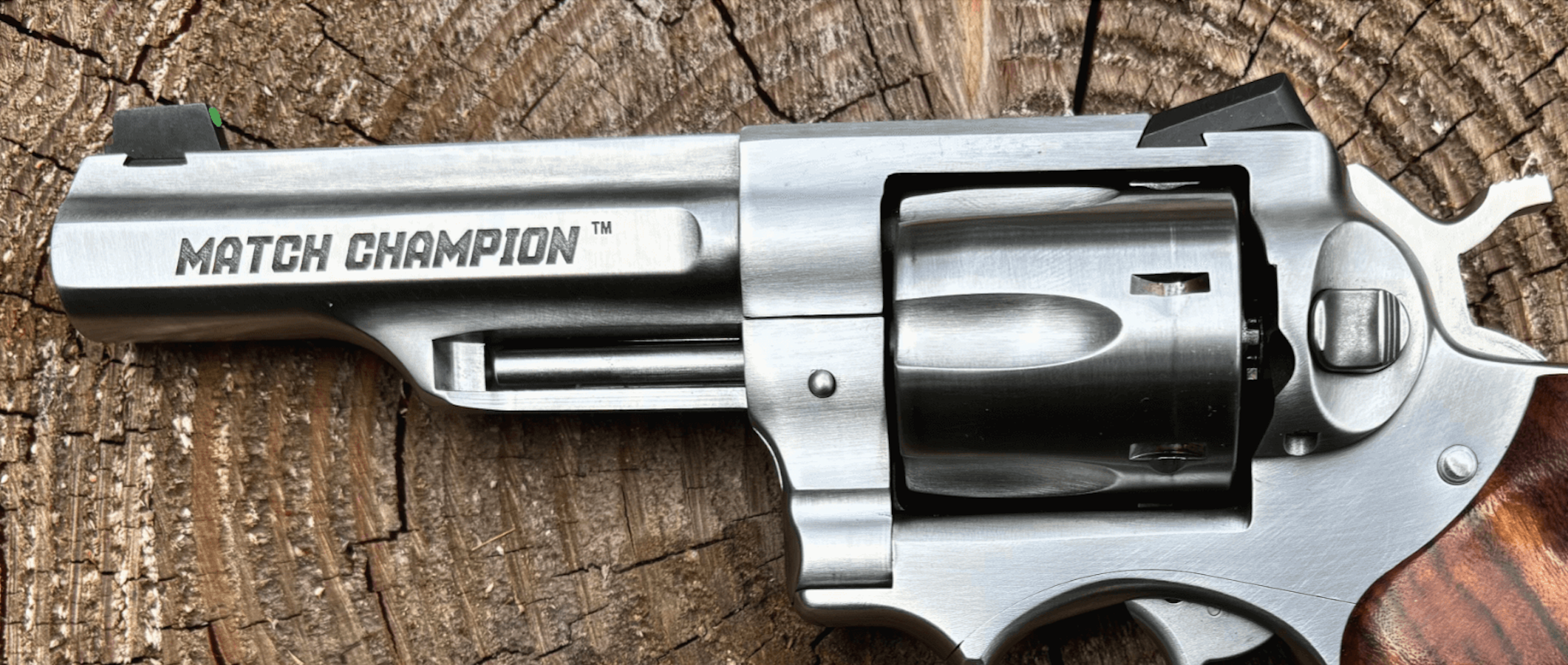


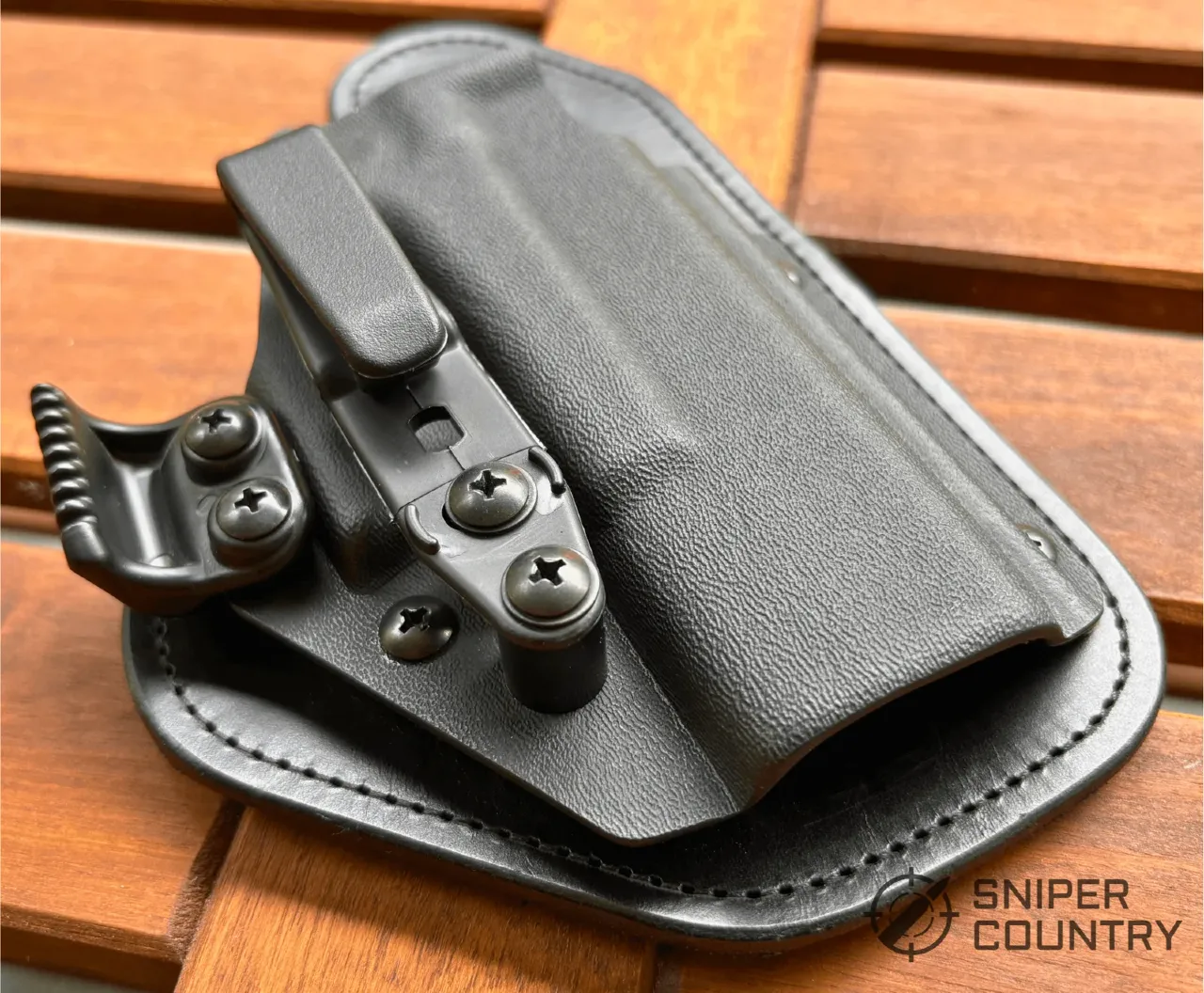

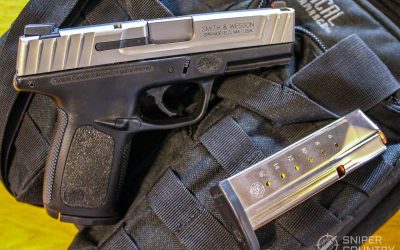
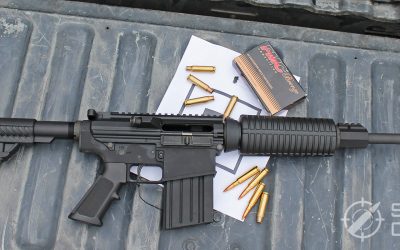


![9mm Glock Models [Ultimate Guide]](https://snipercountry.com/wp-content/uploads/2018/10/Glock-17-vs-Glock-19-vs-Glock-26-vs-Glock-41-vs-Glock-43-WM-400x250.jpg)
![Handgun Caliber Chart [2025 Ultimate Guide]](https://snipercountry.com/wp-content/uploads/2018/10/Handgun-Caliber-Comparison-400x250.jpg)
![Rifle Calibers [Ultimate Guide]](https://snipercountry.com/wp-content/uploads/2018/12/Header-1900-400x250.jpg)

